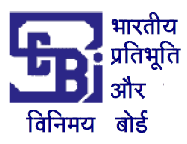Uncategorised
SEBI implements reforms on a grand scale

The Securities and Exchange Board of India has made some far-reaching rule-changes in the last month. Investment advisors now have - or shortly will have - added obligations to fulfil; there are now provisions for fast-track rights issues of units by both InvITs and REITs; new rules apply to gold ETFs; and the regulator is creating a new and attenuated type of operating licence for IT start-ups.
The regulator also wants to make and/or amend some rules in accordance with the SEBI (Investment Advisors) Regulations 2013. It issued a consultative paper in January to this effect and its board has read all the comments. It now wants to change its rules under these regulations to:
- segregate advisory and distributive activities from each other "at client level," to use its phrase, with the aim of avoiding conflicts of interest;
- ban every investment advisor from performing distribution-related services;
- allow "implementation services (execution) through direct schemes/products" in the securities market "to" investment advisors, whatever this creative attempt at grammar means;
- force an investment advisor - possibly along with every other investment advisor, although SEBI does not say this - to strike a deal with his/its client that contains terms and conditions regarding investment advisory services, in the interests of greater transparency;
- make the payment of fees 'clearer' - another phrase that invites questions;
- make its criteria for registration as an investment advisor (net worth, qualifications and experience) more stringent;
- shield existing individual investment advisors from this increase in standards; and
- stop anyone who distributes securities from calling himself/itself an “independent financial advisor” (IFA) or “wealth advisor” or anything similar, unless he/it is registered with SEBI as an investment advisor.
SEBI's board has also approved some amendments to the SEBI (Infrastructure Investment Trusts) Regulations 2014 and the SEBI (Real Estate Investment Trusts) Regulations 2014. There are now provisions for fast-track rights issues of units by both InvITs and REITs. Before now, the investment manager of an InvIT had to have five years’ experience in the infrastructural sector. Now SEBI might tolerate a combined relevant experience of not less than 30 years among all the directors and/or partners and/or employees of the investment manager.
SEBI has decided to carry out its proposal to amend the SEBI (Mutual Funds) Regulations 1996 which pertain to the custodians of gold and gold-related instruments such as exchange-traded funds or ETFs. The idea is to "reduce concentration" of these services, whatever that means.
Sponsors and asset management companies have long been obliged to invest in all schemes except close-ended schemes. From now on, they must invest in close-ended schemes also. SEBI has not been very forthcoming about its reason for dictating this, contenting itself with the rather dark and slightly illiterate assertion that its aim is to "bring uniformity across schemes."
SEBI also says that it is inserting "a suitable explanation to regulation 79 (manner of creating pledge in depository) under SEBI (Depositories and Participants) Regulations 2018, that the word 'pledge' shall include re-pledge of securities for margin and/or settlement obligations of the client or such other purposes as specified by the board from time to time."
Regulators all over the world are out of their depth when it comes to financial IT. To help themselves understand the basics, they often try to curry favour with challenger banks (relatively small retail banks that want to compete with large banks) and financial IT companies. They usually attempt to befriend these firms by offering them a farcically negligible relaxation of their rules during the initial stages of product development in return for constant meetings and updates and the right to bother IT people for tips. The mystifying name that they hang on this process is "the regulatory sandbox." As far as Compliance Matters can tell, no regulator has offered anyone an explanation of the relationship between cats in need of the toilet and financial IT.
With this in mind, SEBI has announced - in a manner that sounds rather threatening and unenticing, although it seems not to realise it - that all entities registered with it under s12 SEBI Act 1992 are "eligible for testing." It plans to insert a chapter into its rulebook to allow itself to grant limited certificates of registration to the firms that volunteer for this privilege.